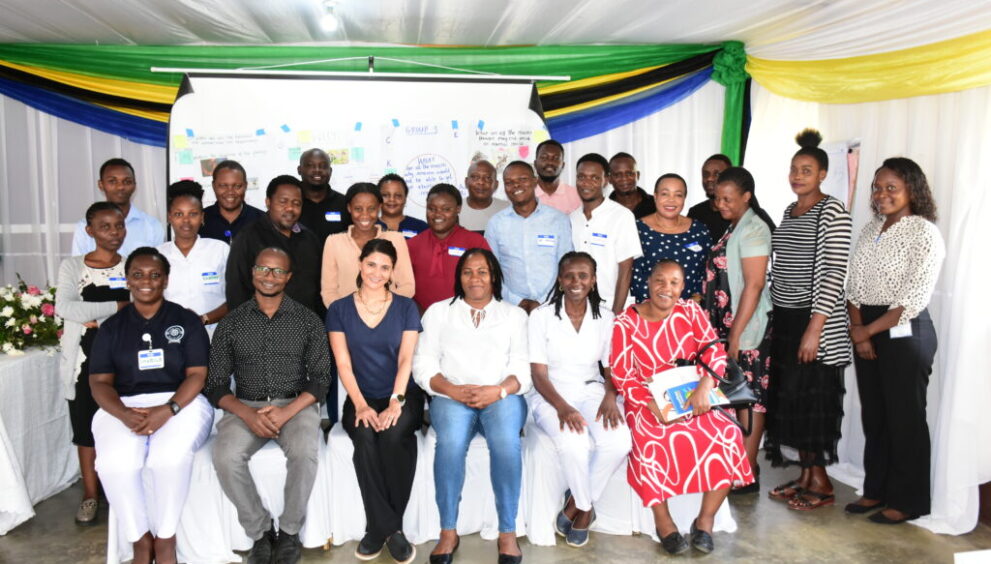Across Zambia, adolescents and young people frequently encounter stigma, judgment, and misinformation when seeking sexual and reproductive health and rights services. Deeply rooted cultural, religious, and societal beliefs shape both community attitudes and the behaviors of health providers, often erecting invisible barriers to essential care such as family planning and safe abortion.
Recognizing that these barriers are as much about mindset as they are about logistics, the Ministry of Health, with technical and financial support from the World Health Organization and partners, convened a four-day Values Clarification and Attitude Transformation (VCAT) training in March 2025. This landmark programme aimed to equip community health assistants and provincial health focal people from each of Zambia’s ten provinces with the self-awareness and professional alignment necessary to deliver nonjudgmental, empathetic services, especially to underserved adolescents and young women.
VCAT functions as a guided reflection process in which health workers examine their own beliefs, biases, and assumptions, and learn to separate personal values from professional responsibilities. At the heart of the March workshop was the realization that comfort with offering contraceptives to married adults did not automatically translate into willingness to serve adolescents.

“ During one session, we found that while most community health assistants were comfortable providing contraceptives to married people, they were reluctant to do so for adolescents ”
Dr. Samson Chisele
He explains that VCAT helped participants “separate personal beliefs from their professional duties, aligning their work with government policy” and laying the groundwork for youth-friendly corners in health facilities.
The training combined accurate legal and medical information on the 1972 Termination of Pregnancy Act with deeply personal narratives from young clients, humanizing their experiences and underscoring the health consequences of unsafe practices.
According to Zambia’s Maternal and Perinatal Data Surveillance and Response system, approximately 760 women died during pregnancy or childbirth in 2024, with an estimated 5.1 percent of these deaths attributable to unsafe abortion despite legal provisions for care when physical, mental or socio-economic conditions warrant it. This stark reality reinforced the urgency of equipping providers to counsel and refer clients without judgment or shame.
In the weeks following the workshop, participants became change agents in their home districts. Hamatanga Gwangai, a health worker from Mululu Rural Health Post in Chibombo District, reports that the youth-friendly corner she helped establish now offers confidential information on contraceptive methods and referrals.
“ We faced some resistance from parents but after sharing personal stories and data, they agreed to allow their children to access these services ”
Hamatanga Gwangai
Her experience highlights how VCAT-inspired outreach can dismantle community misconceptions and foster acceptance of adolescent reproductive health services.
Similarly, Helen Mwape, a community health assistant from James Milambo Memorial Health Post in Lufwanyama District, emphasizes the ripple effect of the training. Recognizing the need for sustainability, the Ministry of Health has tasked
" I received one adolescent for family planning and after asking where she got the information, she pointed to one of the community-based volunteers… so it’s working ”
Helen Mwape
provincial focal people with integrating VCAT into regular supervisory visits and orientation programmes. Danny Kasongo of Misenga Rural Health Post in Mansa District describes how he has not only oriented fellow staff but also convened meetings with community stakeholders to develop local action plans.
“I have created an adolescent safe space where sexual and reproductive health issues are discussed and services are available,” he explains, underscoring the programme’s emphasis on community ownership and continuous learning.
WHO Representative in Zambia, Dr. Clement Peter Lasuba, hailed VCAT as a cultural shift within the health system. “By targeting the root of stigma and empowering health providers, this programme is helping to ensure that no one is turned away or shamed when they seek care,” he declared, affirming WHO’s commitment to expanding values clarification methodologies across training institutions and induction courses.
Looking ahead, Dr. Chisele advocates for the integration of VCAT into nursing and medical school curricula, teacher training colleges, and digital learning platforms. He recommends co-creating modules with local leaders and marginalized groups to ensure relevance and urges the modernization of delivery methods to engage younger, tech-savvy providers. Such measures, he contends, will cement empathy and nonjudgmental care as hallmarks of Zambia’s health workforce and fundamentally transform service delivery for future generations.
Source: Providing nonjudgmental and empathetic sexual and reproductive health services in Zambia




